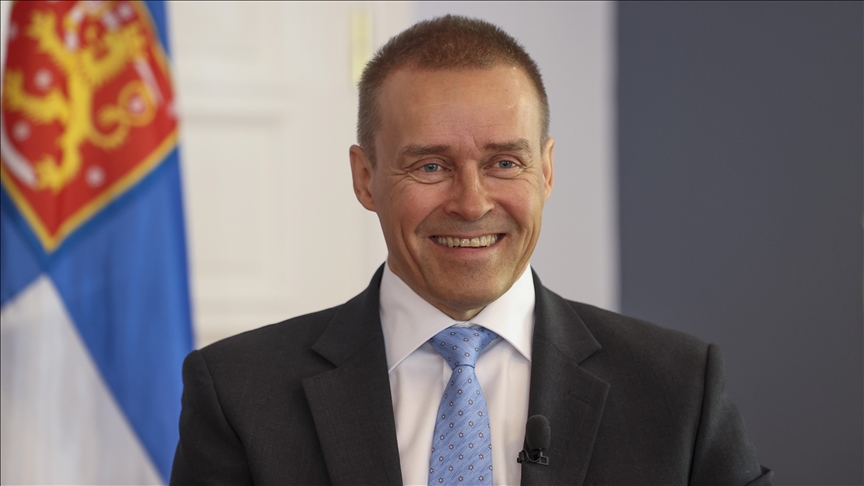ANKARA
After the presentation of medals to domestic and foreign teams that helped search and rescue efforts following the powerful Feb. 6 earthquakes in Türkiye, the EU civil protection mechanism chief said he was honored to be part of such efforts.
“The international team leaders, they were invited by the Turkish president (Recep Tayyip Erdogan), and that is a great honor to all of us … It’s a great honor to receive a medal,” Pekka Tiainen, the coordinator of EU assistance in Türkiye’s earthquake zone, told Anadolu in an exclusive interview in the capital Ankara.
Tiainen was one of those Erdogan gave a presidential medal for distinguished humanitarian service during earthquake response and relief efforts.
At a ceremony on Tuesday, Erdogan said 55,000 people, who he called “symbols of the struggle” after the quakes, are being honored, adding: “We cannot neglect the monuments of sacrifice like you, who are with us in our most difficult days. It is a requirement of our ancient culture not to leave effort, self-sacrifice, and goodness unrequited … Here we want to pay you our debt of gratitude with this ceremony.”
Over 11,300 personnel from 90 countries came to Türkiye after the twin quakes, and 60 countries and international organizations sent nearly 250,000 tents to the southern region.
Tiainen said that Türkiye is a part of the European Civil Protection mechanism and a participating state, adding: “So to say Türkiye is a part of the family and to help family members comes without saying. So in a way we did our duty and supported our friends.”
At the time of the disaster, he said there were three coordination teams in Türkiye, in both Ankara and also the quake-hit area, including the southeastern Gaziantep province.
Stressing that the EU’s assistance is still ongoing, Tiainen said: “I can see that the EU also standing very firmly and supporting Türkiye in this emergency.”
‘Work is still ongoing’
Tiainen, who is also a senior specialist at the Finnish Interior Ministry, noted that Finland is also doing its part to assist the UN in the quake-hit region.
“We have provided the base of operations, the camps – where UN workers can stay and live and work – office facilities, information/communications facilities, and equipment, and so on so forth. So the work is still ongoing and I think we will keep on working till mid May,” he added.
On his work in the quake-hit region, Tiainen called it a “really tiring” mission, both physically and mentally.
“You work 24/7 from early morning till late at night, and for almost three weeks, and there’s no breaks. And as a team leader, you’re worried about your team members all the time. We were spread out over seven different locations, which makes team management and team leading very challenging,” he added.
Tiainen got a warm welcome when got back home after spending three weeks in the region, but he said it took a long time to recover mentally.
When asked if he would come back to the region to visit, Tiainen said right now he has no plans to but added that he would be very interested in again seeing people he had met in Türkiye and became friends.
“It would be very nice but oftentimes this is not happening,” he explained.

